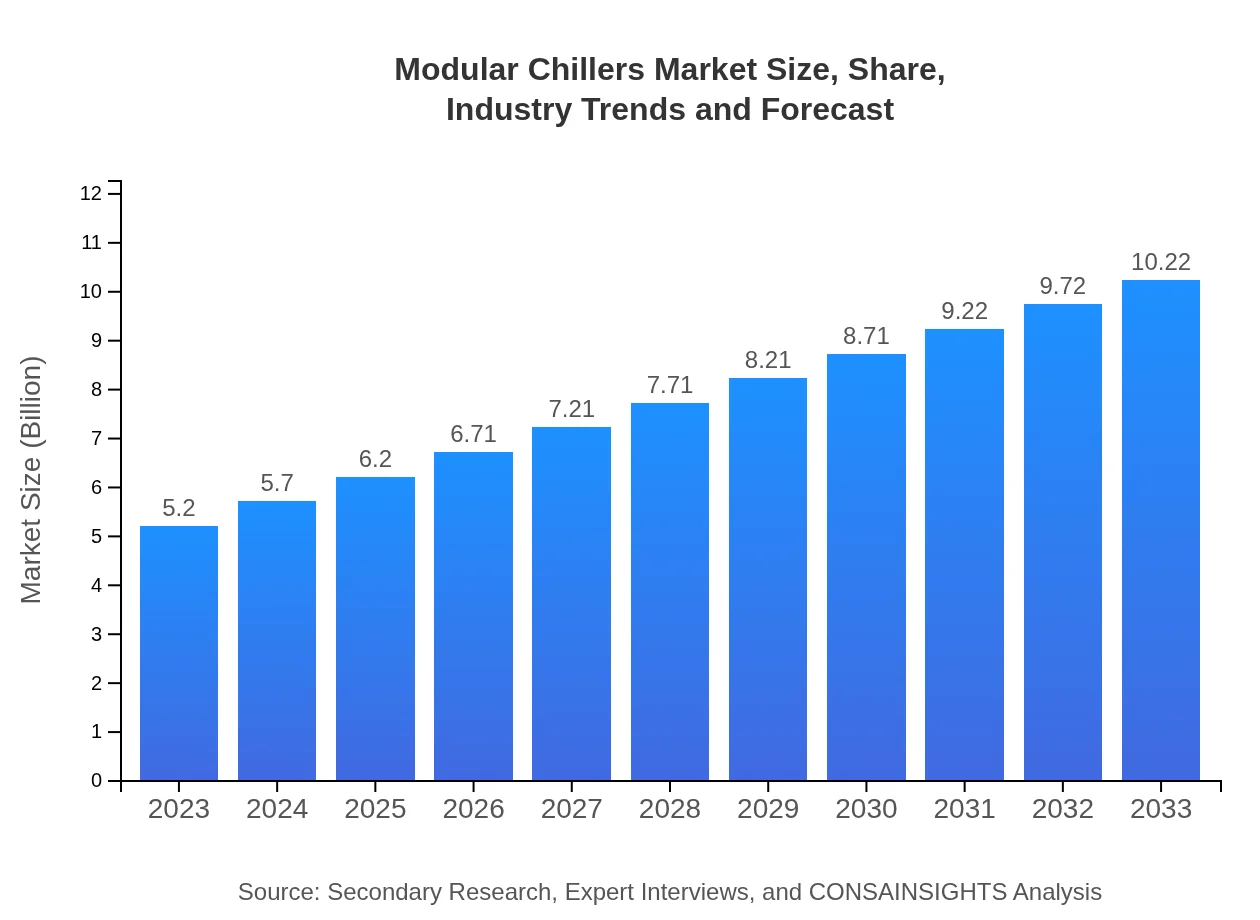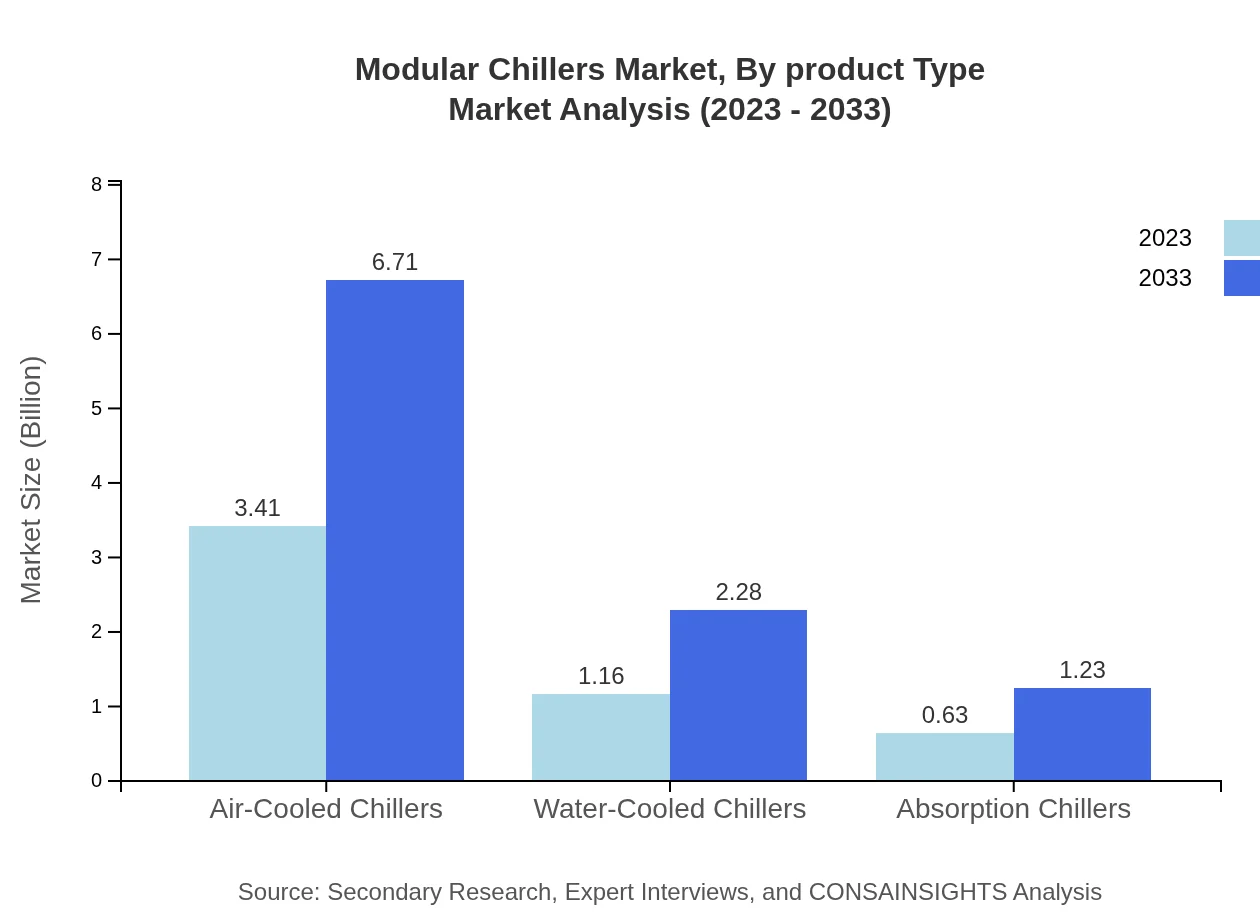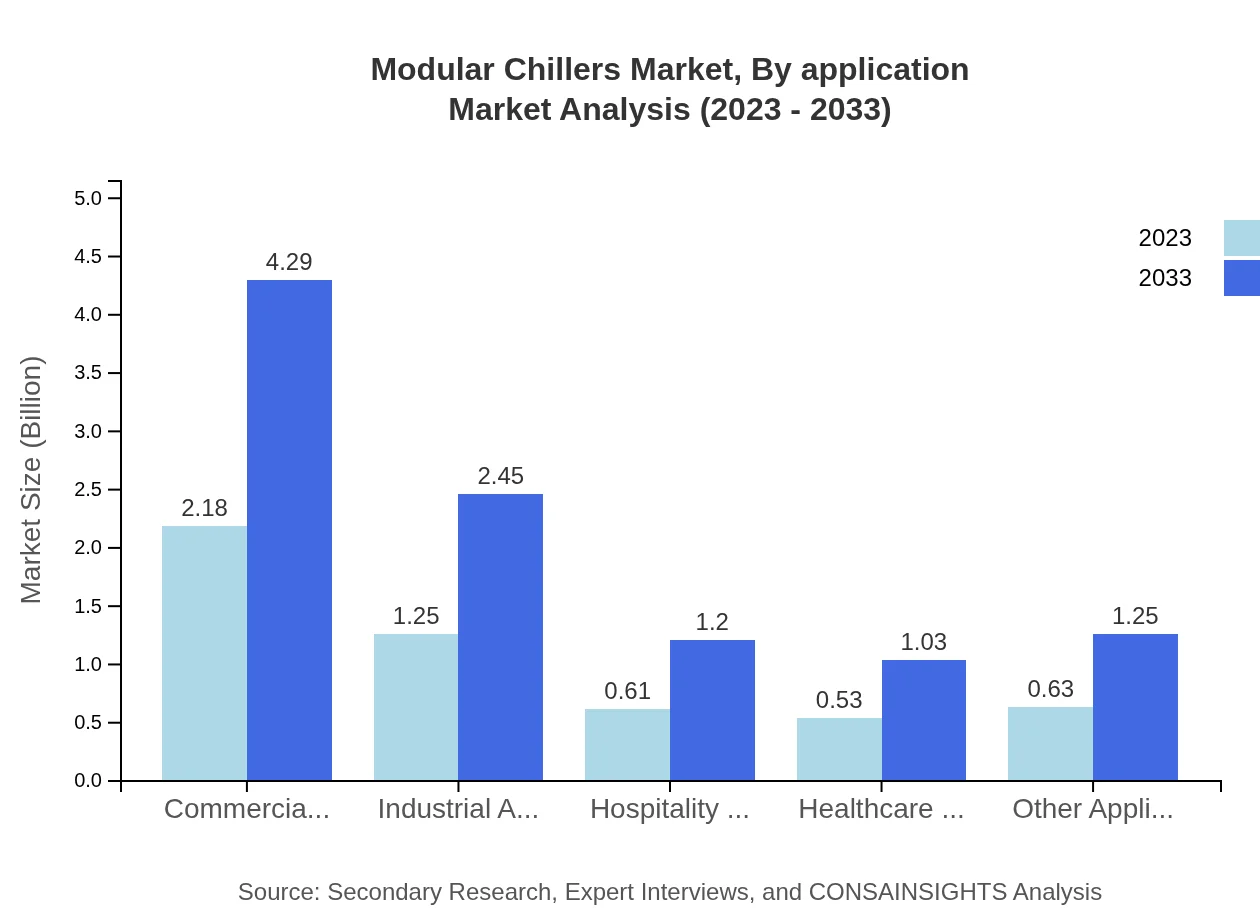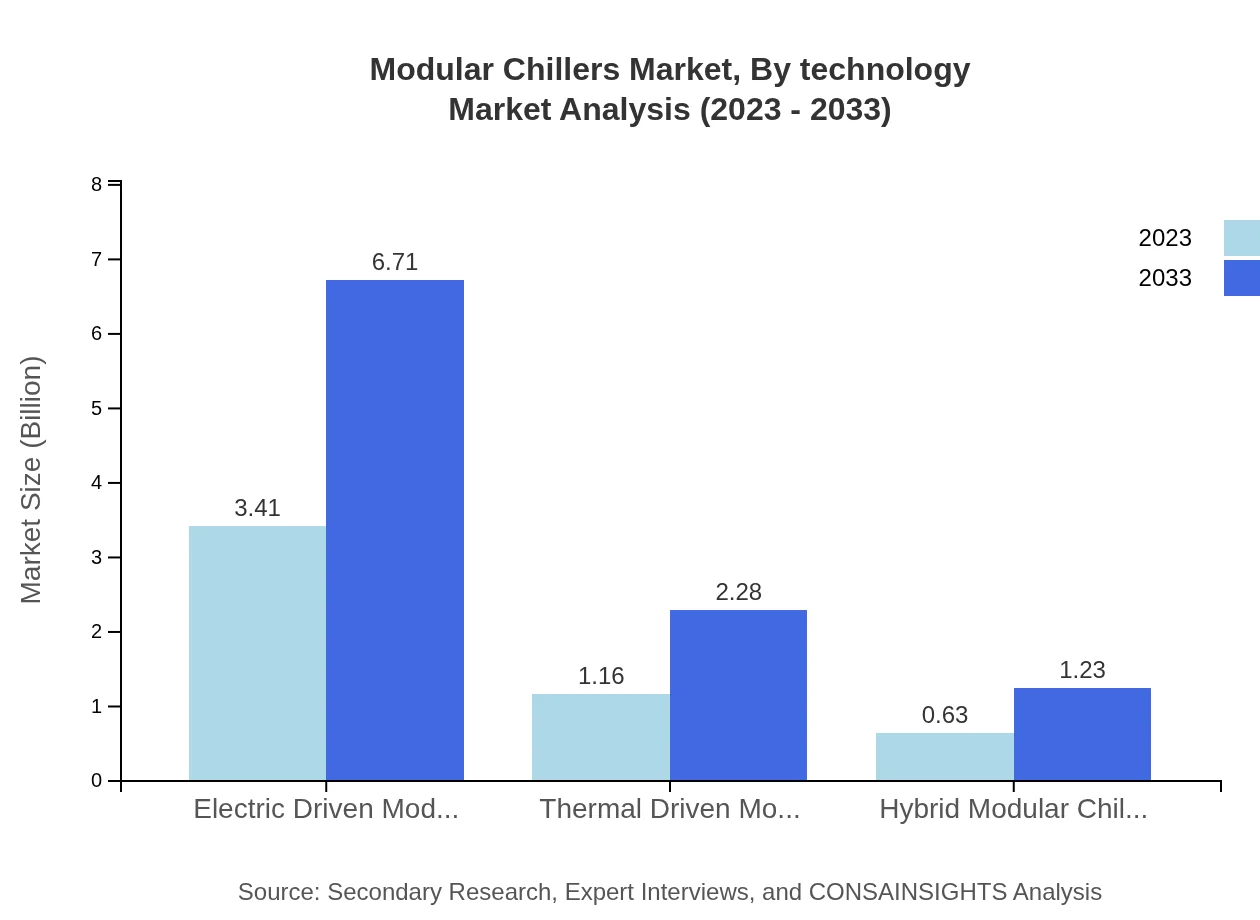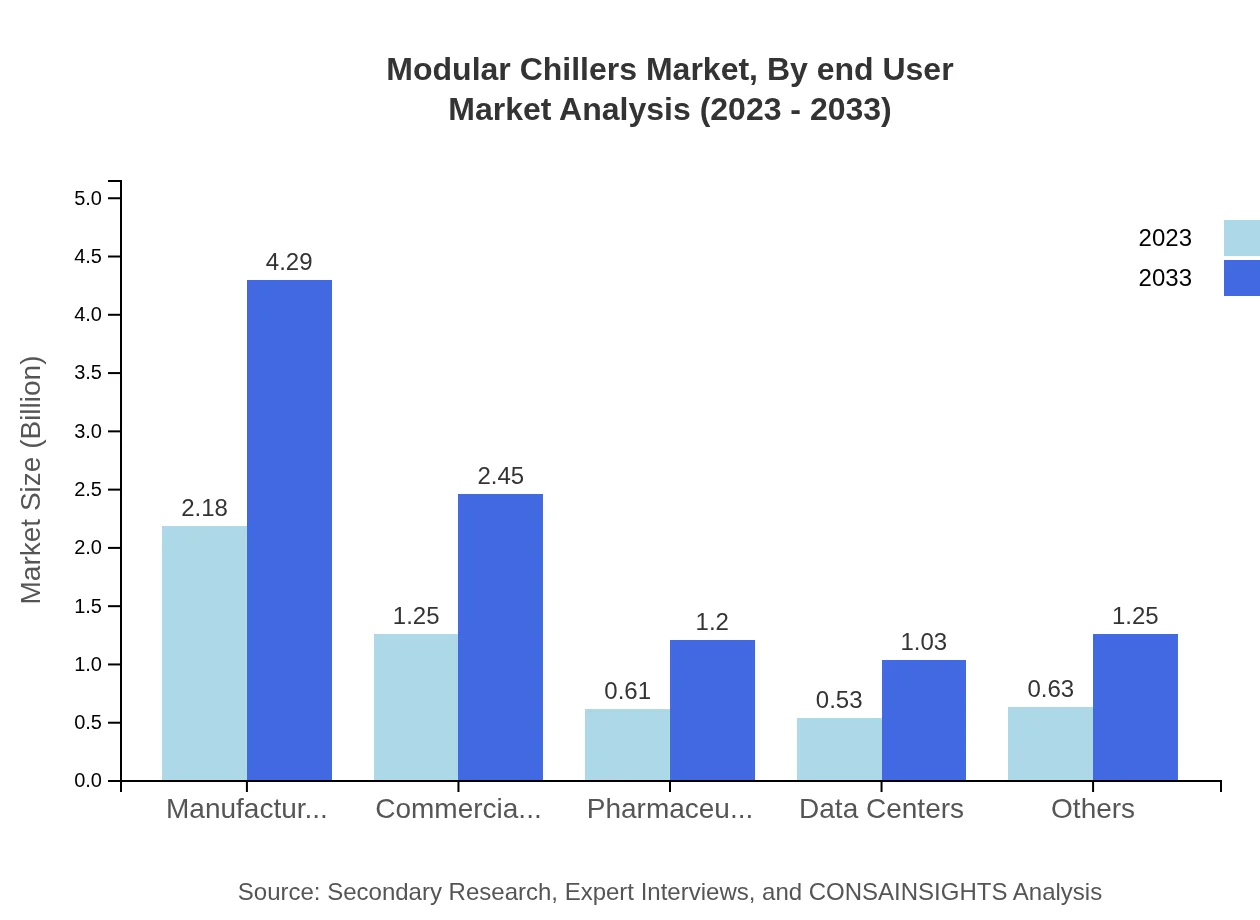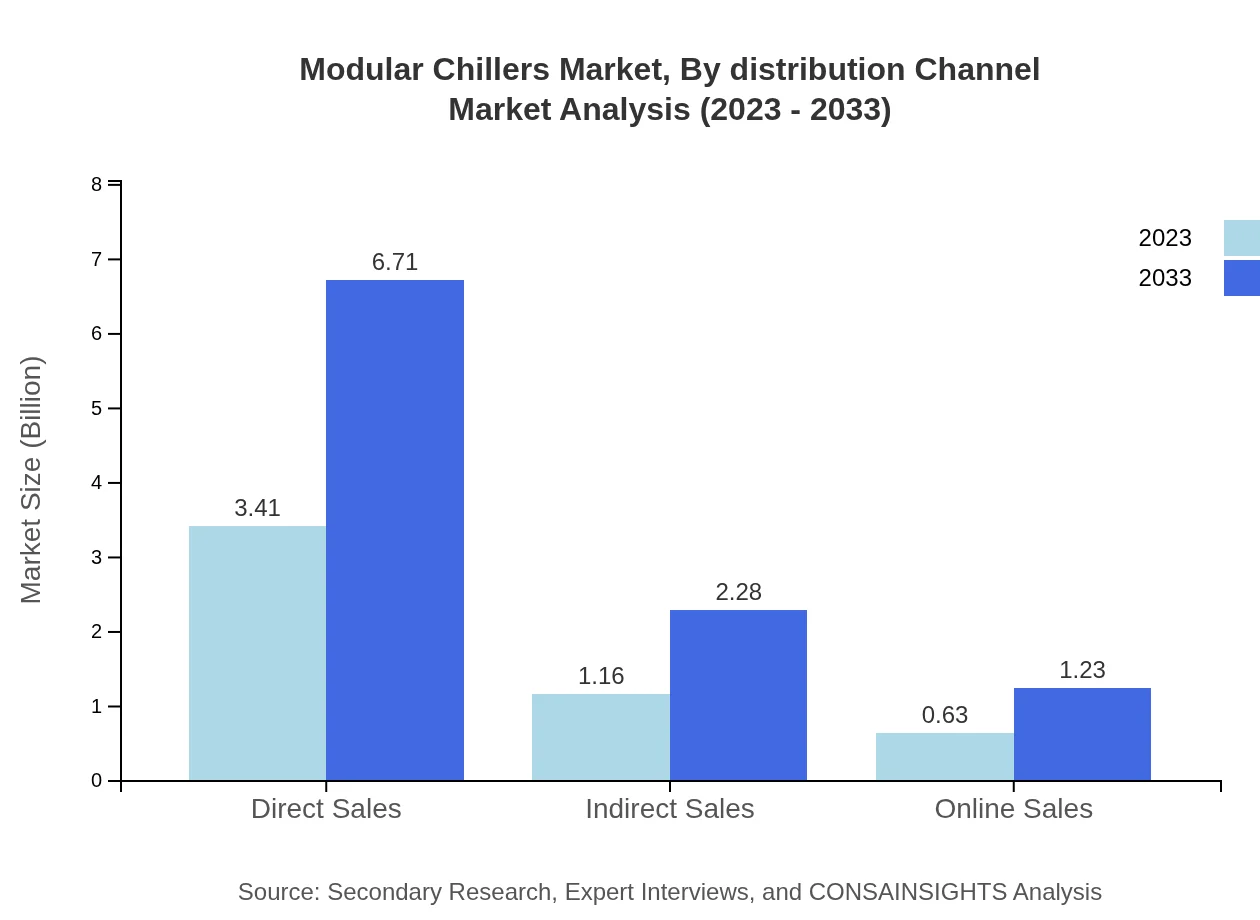Modular Chillers Market Report
Published Date: 22 January 2026 | Report Code: modular-chillers
Modular Chillers Market Size, Share, Industry Trends and Forecast to 2033
This report provides an in-depth analysis of the Modular Chillers market, covering key insights, trends, and forecasts up to 2033. The information includes market size, growth rates, segments, and regional performance to help stakeholders make informed decisions.
| Metric | Value |
|---|---|
| Study Period | 2023 - 2033 |
| 2023 Market Size | $5.20 Billion |
| CAGR (2023-2033) | 6.8% |
| 2033 Market Size | $10.22 Billion |
| Top Companies | Carrier Corporation, Trane Technologies, Daikin, Johnson Controls |
| Last Modified Date | 22 January 2026 |
Modular Chillers Market Overview
Customize Modular Chillers Market Report market research report
- ✔ Get in-depth analysis of Modular Chillers market size, growth, and forecasts.
- ✔ Understand Modular Chillers's regional dynamics and industry-specific trends.
- ✔ Identify potential applications, end-user demand, and growth segments in Modular Chillers
What is the Market Size & CAGR of Modular Chillers market in 2023?
Modular Chillers Industry Analysis
Modular Chillers Market Segmentation and Scope
Tell us your focus area and get a customized research report.
Modular Chillers Market Analysis Report by Region
Europe Modular Chillers Market Report:
Europe's Modular Chillers market will grow from $1.48 billion in 2023 to $2.90 billion by 2033. This growth is underpinned by EU regulations mandating reduction in carbon footprints and increased investments in renewable energy projects.Asia Pacific Modular Chillers Market Report:
In the Asia Pacific region, the Modular Chillers market is projected to grow from $1.09 billion in 2023 to $2.15 billion by 2033. The region's growth is driven by rapid urbanization, expanding commercial spaces, and increasing green building initiatives that focus on energy-efficiency.North America Modular Chillers Market Report:
North America is leading with a market size of $1.85 billion in 2023, expected to reach $3.63 billion by 2033. The surge is attributed to the high concentration of data centers and the hospitality sector demanding advanced cooling solutions, alongside stringent energy regulations.South America Modular Chillers Market Report:
South America's Modular Chillers market is expected to see growth from $0.40 billion in 2023 to $0.79 billion in 2033. The demand is mainly fueled by increased investment in commercial infrastructure and a growing emphasis on sustainable building technologies.Middle East & Africa Modular Chillers Market Report:
In the Middle East and Africa, the market is forecasted to grow from $0.38 billion in 2023 to $0.74 billion by 2033. The region is witnessing substantial industrial growth and urbanization, which is boosting the demand for efficient cooling systems.Tell us your focus area and get a customized research report.
Modular Chillers Market Analysis By Product Type
Electric Driven Modular Chillers dominate with a market size of $3.41 billion in 2023, set to grow to $6.71 billion by 2033, holding a 65.61% market share. Thermal Driven Modular Chillers follow with a size of $1.16 billion projected to reach $2.28 billion. Hybrid Modular Chillers are also expanding, forecasting growth from $0.63 billion to $1.23 billion.
Modular Chillers Market Analysis By Application
Commercial Applications lead with $2.18 billion in 2023, with projections to grow to $4.29 billion by 2033. Manufacturing comes next with growth from $2.18 billion to $4.29 billion. The Data Center sector sees growth from $0.53 billion to $1.03 billion, driven by increasing data consumption and cloud services.
Modular Chillers Market Analysis By Technology
The Modular Chillers market is witnessing a shift towards IoT-integrated chillers that provide real-time monitoring and control, thereby enhancing efficiency. Innovations such as variable speed compressors and advanced refrigerants contribute significantly to improving energy performance in response to regulatory demands.
Modular Chillers Market Analysis By End User
Key end-users include the commercial buildings sector, driven by office complex and retail demands, as well as the pharmaceutical industry requiring precise temperature controls. The healthcare sector is also pivotal, transitioning towards sustainable solutions for operational efficiency.
Modular Chillers Market Analysis By Distribution Channel
The market distribution is primarily through Direct Sales, which holds a significant share of 65.61%, along with Indirect and Online Sales gaining traction, particularly amid the digital transformation, where online platforms facilitate broader distribution and customer access.
Modular Chillers Market Trends and Future Forecast
Tell us your focus area and get a customized research report.
Global Market Leaders and Top Companies in Modular Chillers Industry
Carrier Corporation:
A pioneer in the HVAC industry, Carrier specializes in sustainable cooling technologies and innovative modular chillers, contributing largely to energy-efficient solutions globally.Trane Technologies:
Trane is known for its cutting-edge HVAC solutions, providing advanced modular chillers with exceptional energy performance, thus leading industry standards for efficiency.Daikin:
Daikin is a global leader in air conditioning and refrigeration, continually innovating modular chiller solutions to address market demands for energy efficiency and sustainability.Johnson Controls:
Johnson Controls' extensive expertise in building management systems aligns with their modular chiller offerings, focusing on integrated smart technologies for optimal performance.We're grateful to work with incredible clients.









FAQs
What is the market size of modular Chillers?
The global modular chillers market was valued at approximately $5.2 billion in 2023 and is projected to grow at a CAGR of 6.8% from 2023 to 2033, reflecting increasing demand for energy-efficient cooling solutions.
What are the key market players or companies in this modular Chillers industry?
Key players in the modular chillers market include Carrier Global Corporation, Trane Technologies, Johnson Controls, Daikin, and Mitsubishi Electric, among others, contributing to innovations in energy efficiency and sustainability.
What are the primary factors driving the growth in the modular Chillers industry?
The growth in the modular chillers industry is driven by the demand for energy-efficient cooling systems, increased focus on reducing carbon emissions, growth in construction activities, and advancements in refrigeration technologies.
Which region is the fastest Growing in the modular Chillers market?
The Asia Pacific region is anticipated to be the fastest-growing market for modular chillers, increasing from $1.09 billion in 2023 to $2.15 billion by 2033, driven by urbanization and expanding industrial sectors.
Does ConsaInsights provide customized market report data for the modular Chillers industry?
Yes, ConsaInsights offers customized market report data tailored to specific client needs in the modular chillers industry, providing in-depth insights and analytics to support strategic decision-making.
What deliverables can I expect from this modular Chillers market research project?
Deliverables from this modular chillers market research project include comprehensive market analysis, growth forecasts, competitive landscape assessments, and segmented data by regions and applications, designed for actionable insights.
What are the market trends of modular Chillers?
Current trends in the modular chillers market include a shift towards hybrid chillers, increasing adoption of digital technologies for monitoring, and a focus on integrating renewable energy sources into cooling systems.

